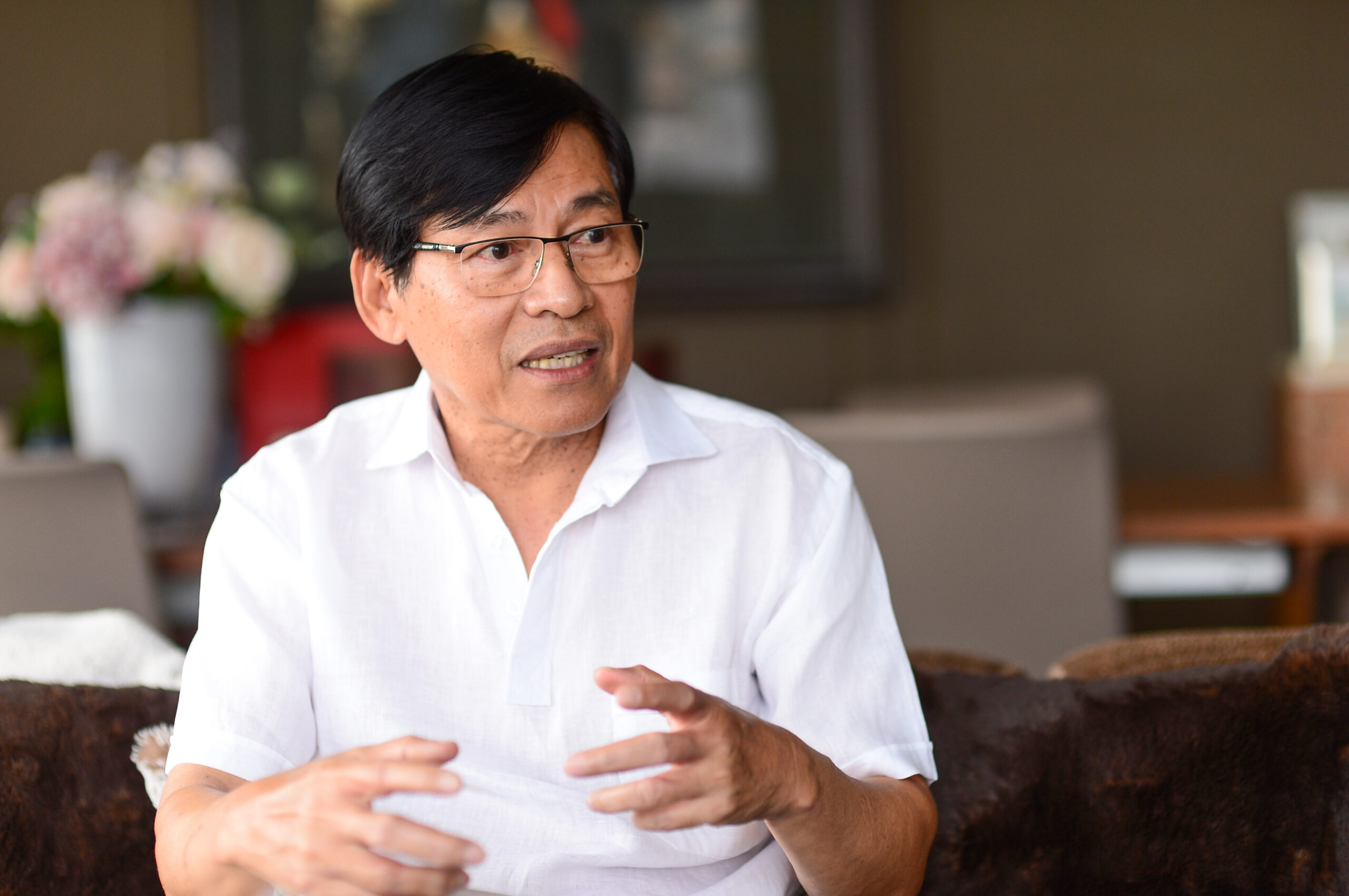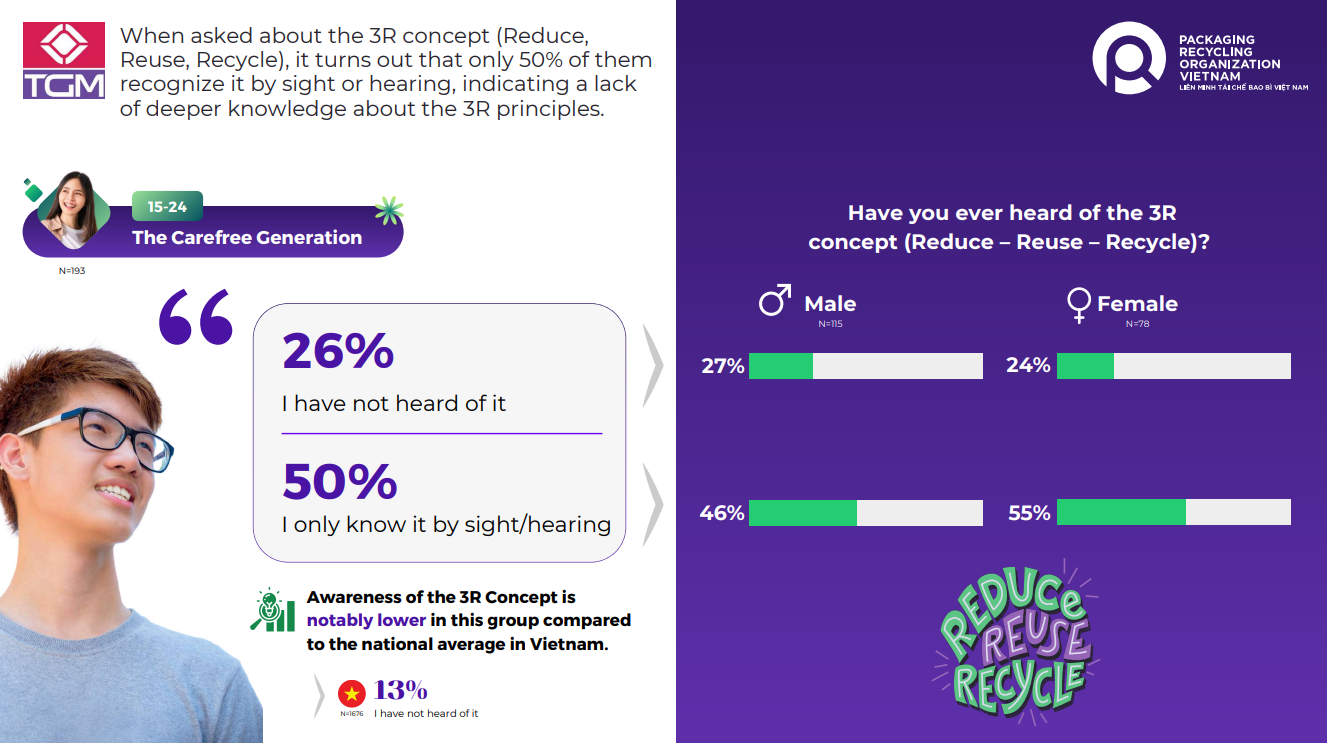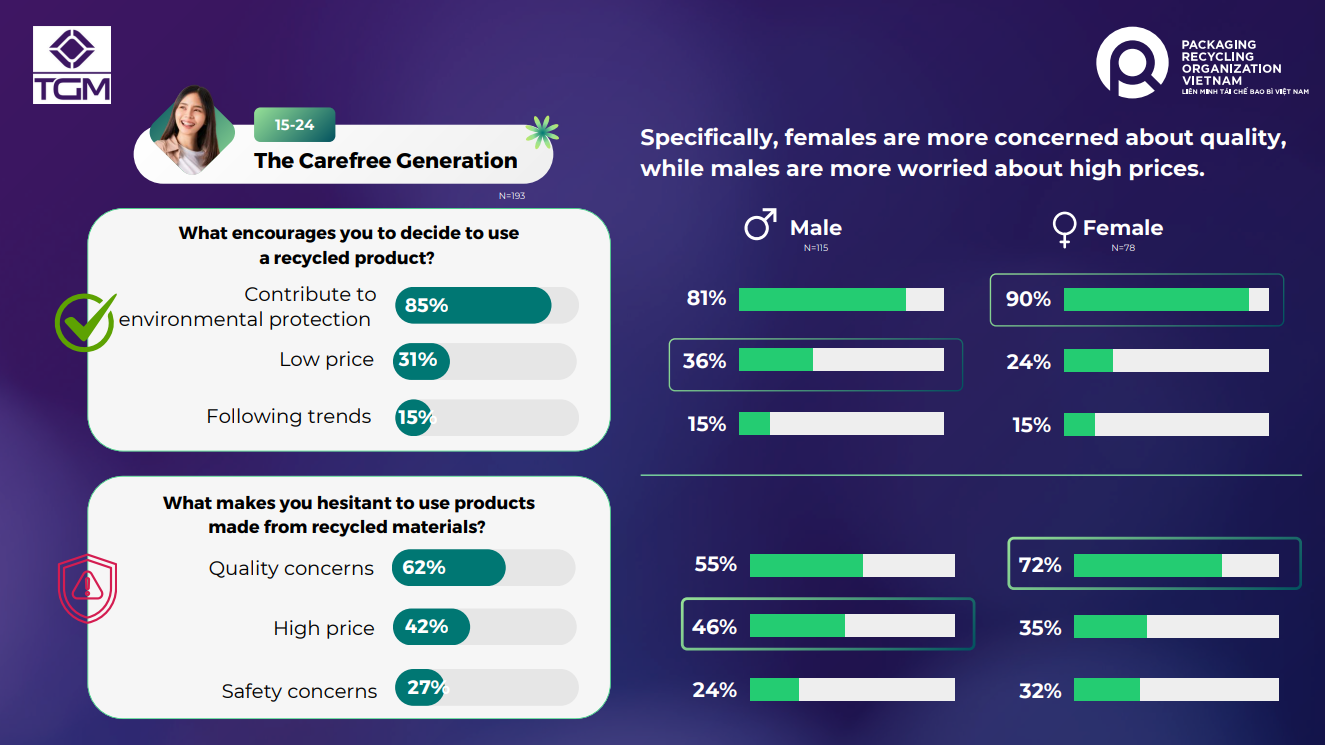With the desire to raise the community’s awareness and responsibility towards environmental protection, contributing to a greener, cleaner, and more beautiful Vietnam, the Packaging Recycling Organization Vietnam (PRO Vietnam) has collaborated with TGM Research to conduct a survey on consumer awareness and behavior regarding waste sorting and recycling across the country.
The research delves into the core issues that create the gap between consumer awareness and action on environmental issues. It also identifies the barriers that limit consumers’ habits of using recycled products. Through this, PRO Vietnam and related stakeholders can develop practical activities to promote waste sorting at the source and guide consumers toward environmentally friendly, recycled products.

Emphasizing the benefits of this collaboration and sharing a common vision for a greener, cleaner, and more beautiful Vietnam, Mr. Pham Phu Ngoc Trai, Chairman of PRO Vietnam, stated: “Raising community awareness about recycling and waste sorting is one of the strategic priorities in PRO Vietnam’s activities. Through this cooperative research with TGM Research, we aim not only to gain a deep understanding of the current awareness, behavior, and barriers related to waste sorting in particular and environmental protection actions in general among the public. We hope that government agencies, non-governmental organizations, and other stakeholders can refer to this research to perfect policies and build specific action programs to strongly influence the awareness and actions of each citizen.”

Mr. Greg Laski, Founder and CEO of TGM Research, commented: “Vietnam is at an important crossroads in its economic development journey, especially as the current linear economic model reveals serious limitations concerning environmental pollution and resource waste. The issuance of the 2020 Environmental Protection Law, with regulations on waste sorting at the source effective from January 1, 2025, further underscores the urgency of this issue. Therefore, we believe this report is released at an incredibly timely moment, giving us a golden opportunity to create groundbreaking changes, aiming for a future where waste is transformed into valuable resources rather than a burden on the environment.”
Below is a summary of the main points from the Waste Sorting Report in Vietnam:
Vietnamese people’s concern for the environment is increasing, but the participation rate among young people remains limited
Survey results show that the environment is an issue of growing concern for the Vietnamese people, with 73% expressing concern about environmental issues, especially in major cities like Ho Chi Minh City and Hanoi. However, the age group showing the least concern about environmental issues is the 15-24 age group. Although they are aware of the current general environmental challenges, 40% of people in this age group admit that they are not truly aware of the impacts of environmental degradation in their living areas. This leads to a relatively low participation rate in environmental protection activities, such as waste sorting. The survey shows that only 30% of young people in this “Gen Z” generation admit to having participated in local environmental protection activities or meetings.

The difference in awareness within this age group is also reflected in their understanding of sustainability concepts such as the 3R principle (Reduce, Reuse, Recycle). While 87% of survey respondents across all demographics are aware of the 3R principle, this number is significantly lower in the 15-24 age group. Specifically, 26% of this group have never heard of the 3R principle, and about half have only passively encountered this concept. The survey also shows that, in reality, the level of environmental awareness in this age group stops at awareness without specific actions. Despite expressing support for waste sorting at the source, only 34% of this age group actually practice it at home.
A contrasting picture of young people’s environmental protection habits: Existing challenges and potential needs
The participation rate in environmental protection activities among young people, particularly in waste sorting, remains low. Further research shows that limited time and costliness are considered the biggest barriers, with 15.8% of respondents citing these as the main issues. This may be related to the busy lifestyle often seen in this age group, where financial balancing and time management are major challenges. Additionally, 12.7% of surveyed people stated that they lack knowledge about the types of waste that need sorting.

Moreover, 85% of this age group are aware of the benefits of recycled packaging products, but the main factors influencing their purchase decisions are product quality (62%) and price (42%). Among them, females show greater concern (72%) about quality, while males are more concerned about costs.
However, a positive sign is gradually emerging: Waste sorting at the source has not yet become a common habit, but more than 50% of surveyed people aged 15-24 have recognized the importance of waste sorting. Notably, 95% expressed interest in learning more about waste sorting methods. This highlights the necessity of enhancing waste sorting knowledge for the community, especially the teenage age group.
Raising awareness about waste sorting among young people: Opportunities and solutions
Survey results show the need to intensify waste sorting activities at the source, focusing on the 15-24 age group. This group has limited awareness of the city’s waste sorting program, below the national average. Additionally, 57% of respondents believe they have not received official instructions on waste sorting or environmental protection knowledge, indicating the necessity for comprehensive and continuous educational programs for this age group.
To address this limitation, local authorities can implement educational campaigns combined with community activities. According to the survey, 78% expressed a desire to participate in training sessions, while 55% said they want to receive educational materials.
Young people are a group with a strong influence on the community, especially on social media. Therefore, focusing on enhancing environmental protection awareness and knowledge for this age group is essential to inspire and promote action within the community.
Check out full report here.